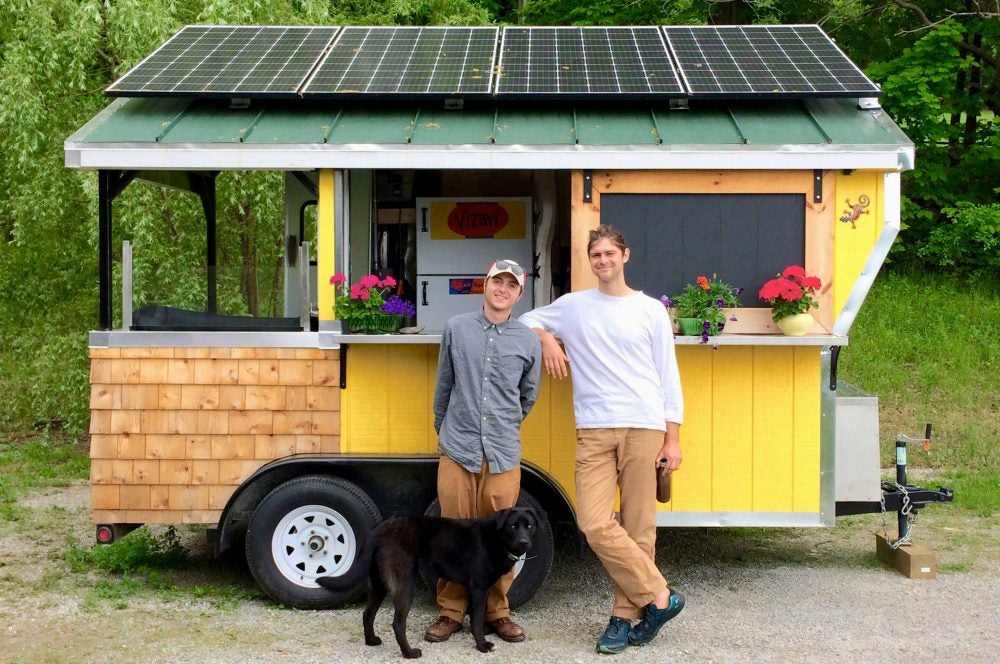
Matt Fuller and Justin Bristol with their VizaVi Solar Food Cart, designed and built for Julia Rhode, who operates it from her home in Vermont.
When alumnus Justin Bristol ‘17 was a first-year student, he imagined how fun it would be to have a solar-powered food cart where people could charge their phones, socialize, and enjoy smoothies and snacks. A year later he bought a trailer and spent the next year converting it into an eye-catching mobile venue for selling crepes.
Today, SolarCart Co.—the company he established with friend Matt Fuller ‘18—builds solar-powered food carts that are operated by chefs and other entrepreneurs around the country in a partnership agreement.
“What kept us going were the thought-provoking qualities of the business,” said Bristol, who majored in environmental and natural resource economics. “We were interested in making people think about the food they’re eating and the setting it’s served in. Eventually, we realized that we were more interested in the process of building the carts than we were in serving food. So now we’re creating a unique setting for chefs and customers.”
Bristol describes his carts as “creatively-built, solar-powered, prefab, affordable restaurants.” And the business is taking off.
“A food cart like this can create just as much volume as a restaurant but in a smaller space,” he said. “And it can be more creatively designed because we don’t have to be restricted by building permits.”
After modifying their original design multiple times, Bristol and Fuller—who earned a civil engineering degree and now focuses on cart design while working full time for a construction management firm—came up with a standard cart that chefs can personalize based on their menu, theme, and style.
They built one that looks like a tiny house for a client in Vermont. Another was a regular presence at URI football games last fall. Bristol and Fuller are finishing up another cart this spring to be used as a mobile espresso bar at weddings in northern California wine country. And, in an unusual arrangement, airline JetBlue has ordered a customized cart to use at next year’s Boston Marathon. After the event, the cart will be returned to the company to lease to someone else.
The company has also begun working with Roaming Hunger, a food truck booking service in California that provides food trucks to corporate clients and major promotional events.
“Cities are starting to get concerned with the noise and pollution that food trucks produce,” Bristol said. “But ours are quiet and don’t pollute, so we’re optimistic for our future.”
Those hoping to check out one of the duo’s creations nearby will have the chance this summer when an oversized solar cart serving ice cream and Mexican food will open up in a semi-permanent location in downtown Wakefield. And next fall, they are making plans to open another at an undisclosed location close to the Kingston campus.
In 10 years, the URI entrepreneurs hope to be franchising the carts.
“Everything starts with an idea,” Bristol concluded. “But if you think hard enough and you want it enough, you can make it happen.”


